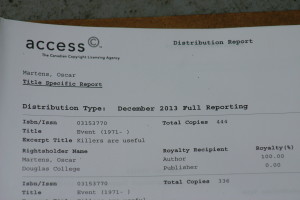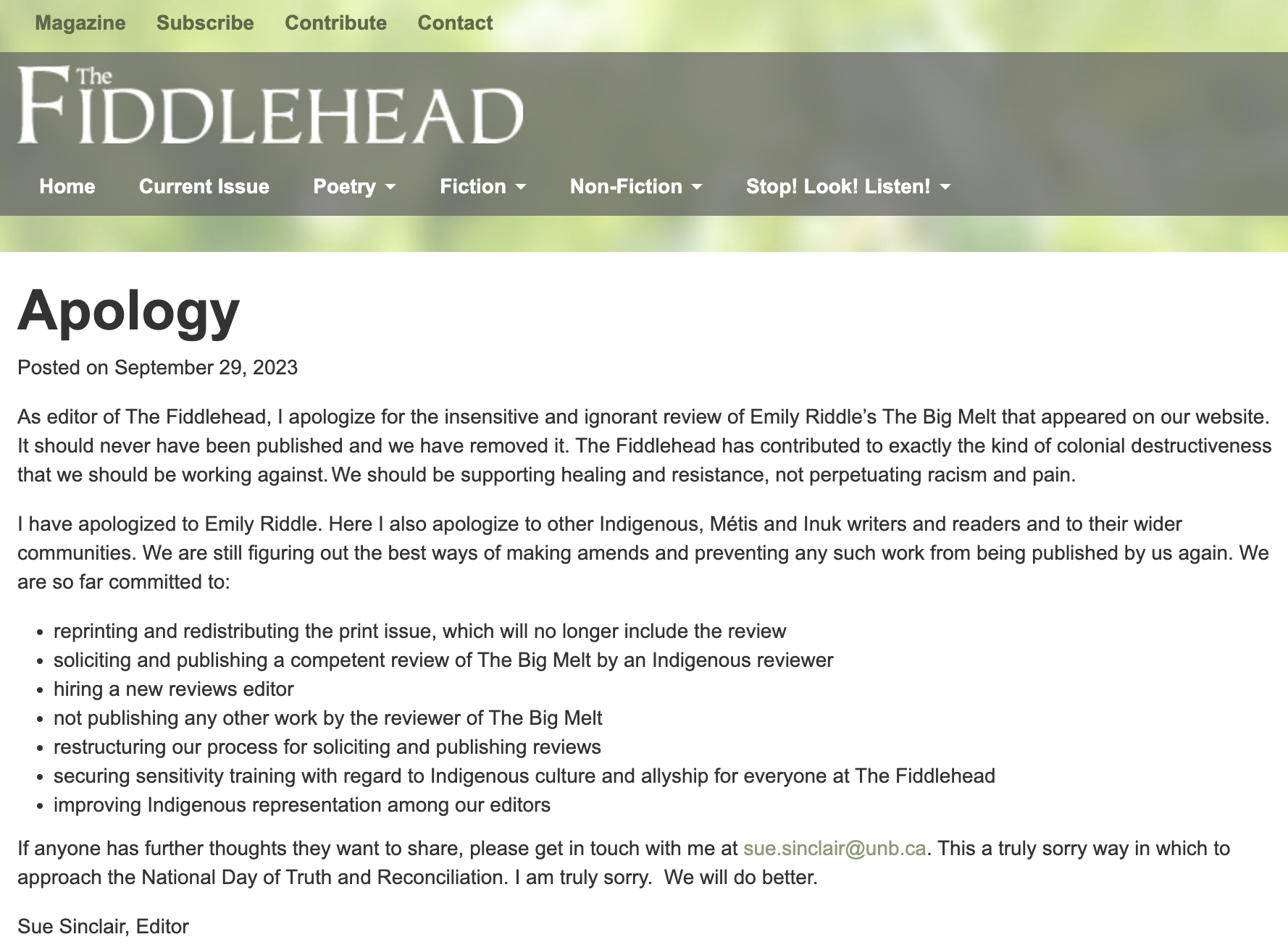The other sad little cheque I receive every year (other than Public Lending Right) comes from Access Copyright. Payment varies, but in 2015 I received $120.04. In 2013, I made much less, but I received a detailed report that indicated that someone had made 444 copies of “Killers are Useful”, a short story I published in Event. How thrilling to think my work was being inflicted on young minds in one of our fine institutions of higher learning!
How thrilling to think my work was being inflicted on young minds in one of our fine institutions of higher learning!
Unlike the PLR, which seeks to compensate authors for the free use of the their works in libraries, AC attempts to compensate authors for people who think it’s okay to photocopy entire textbooks. They have the tougher of the two jobs, I think. The entire program is under threat thanks to the educational sector’s interpretation of “fair dealing”. Access Copyright had PricewaterhouseCoopers conduct an independent economic assessment of the new guidelines in place since 2012, and it doesn’t look good for Canadian educational publishers. Perhaps the payment I received for copies made of my story will be the last payment I receive, as those following the guidelines (which are not supported by the law) believe it’s their right to copy up to 10% of a book without compensation. University budgets are always under pressure, and many students can pull the poverty card, but most writers can do the same. Will this devolve into competitive claims of victimhood?
Technology has made theft much more convenient now that downloads are the weapon of choice. As file sharing evolved through the fall of Napster and the rise of iTunes, maybe written works will be affected in the same way. You can’t fight against the download army, only negotiate with it. If written work follows music, everyone associated with publishing will receive less than before, but at least they will receive something. It is curious that this type of theft seems different than other kinds of theft. Few hesitate to discuss the new-release movie they just downloaded, but a much smaller group would be as open about the stereo they boosted from the Ranger Rover in the Safeway parking lot.
Anti-copyright activists who feel that intellectual property rights stifle creativity and innovation might point to Elon Musk as an example of someone who willingly gave up his rights for the greater good. This is entirely appropriate if you are a.) a billionaire who inspired the character Tony Stark, b.) on a mission to save the planet with your groundbreaking technology, and c.) believe that withholding this technology from others might contribute to the eventual destruction of the human race through global warming. For the rest of us, maintaining control over the rights to our creative works may be a matter of survival.




So together your two sad cheques add up to $191? Is there a fair amount that you think you should receive for your past writing? Just curious what you think you should be receiving? Also interested in figuring out how Access Copyright estimates what your fair share of their licencing revenue should be?
I can’t think of a fair amount for past writing. I don’t want you to think I was complaining about the amounts on the cheques. They’re small cheques because I’ve only published one collection of stories in 2002. Other writers might makes as much as $4000 between the two programs. I’m not sure how Access Copyright arrives at my percentage of revenue. There may be a breakdown in one of their annual reports, but I didn’t see it in my investigation.